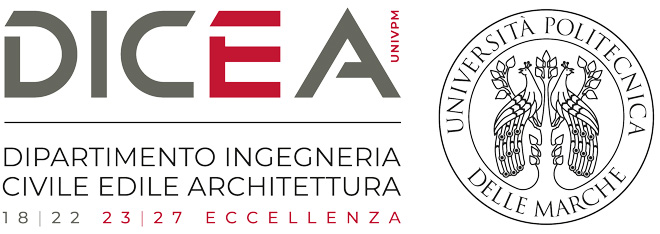The Research Group of Transportation Infrastructures, at the beginning called “Institute of Roads and Transportation”, was founded by Prof. Felice Ausilio Santagata. The Institute of Roads and Transportation developed, including the hydraulics sector, into the Department of Hydraulics and Road Infrastructure. Finally, the Department of Hydraulics and Road Infrastructure has become part of the Department of Civil, Building and Architectural Engineering.
Since 2004, the Transportation Infrastructures group has ranked first in Italy for the quality of research results in the sector of Roads, Railways and Airports, as evidenced by the three assessment processes (2004-2010, 2011-2014 and 2015-2019) carried out by the National Agency for the Evaluation of the University System and Research.
The group is currently composed of six faculty members, two technicians, and about ten fellows and doctoral students. Every year, about fifteen students carry out their curricular internship activities in the Transport and Road Research Laboratory.
The areas of interest, for teaching, research and technology transfer, are road and airport infrastructures and materials. The activities of the research group focus on design, construction, maintenance and management of road and airport infrastructures. In recent years, the research group projects have been mainly addressed to pursuit new solutions and to define innovative approaches to improve the sustainability of road and airport construction, to facilitate the circular economy and to promote the transition to smart infrastructures.
The teaching activities are included in the Bachelor degree program in Civil and Environmental Engineering, the Master degrees in Civil Engineering and Environmental Engineering, and the single-cycle degree program in Building Engineering-Architecture. A total of ten courses are offered, including three in English. Particularly eight courses deal with Road and Airport Construction and Maintenance while two courses deal with Transportation Engineering. Some courses include training in laboratory and design applications as well as field trip to construction sites, mix plants and company facilities.
The research activity is mainly carried out through the development of projects and scientific collaborations with national and international Universities and research associations, such as SIIV, RILEM, EATA and ISAP.
The activity in the field of technology transfer and application is developed through collaborations with public administrations, the industry and the major transport infrastructure agencies.
Research Group of Transportation Infrastructures has become member of the National Center for Sustainable Mobility (MOST) promoted under the National Recovery and Resilience Plan. The MOST includes researchers from 24 University, the Research National Center (CNR) and 24 companies. The mission is implementing modern, sustainable and inclusive solutions for transport systems.
The research activities aim to characterize the physical-mechanical and durability properties of binders and mixtures through an approach based on experimental testing and modelling.
Bituminous binders (normal, modified, biobinders), mastics and mixtures are characterised and investigated using advanced rheological analyses. Research activities also involve the investigation of acoustic, aesthetic and anti-pollution properties of mixtures containing non-traditional materials such as expanded clay, rubber powder, photocatalytic materials, transparent synthetic binders.
The characterization of the interfaces and reinforcement in bituminous systems has led to the development of the equipment called ASTRA (Ancona Shear Test Research and Analysis) that can perform static and dynamic shear tests.
Recycling of road and airport pavements creates a virtuous cycle that optimizes the use of natural resources, improving the sustainability of the infrastructure system. The research activities involve hot, warm and cold recycling technologies (in-plant and in-place). The goal is to develop recycled mixtures that have high performance reducing the environmental impact of the production and construction processes. Dense and open-graded mixtures with high content of reclaimed asphalt are designed implementing hot and warm recycling techniques. Cold recycling mixtures, using both emulsion and foam bitumen are optimised through laboratory and in-situ testing.
Geogrids and geocomposites are used as reinforcements in asphalt pavements. Geocomposites are also used for waterproofing purposes. The research activity aims at advanced characterization of interface properties and flexural strength of reinforced asphalt pavements, ensuring accurate performance prediction and system optimization.
The research team have been involved in the construction of experimental and instrumented pavement sections to investigate the full-scale response of pavements under traffic loading. In particular, the installation of moisture sensors, earth pressure cells, asphalt strain gauges, time domain reflectometer probes and thermistors has been used to study the pavement responses under traffic leading to the Cooperative, Connected and Automated Mobility (CCAM).
